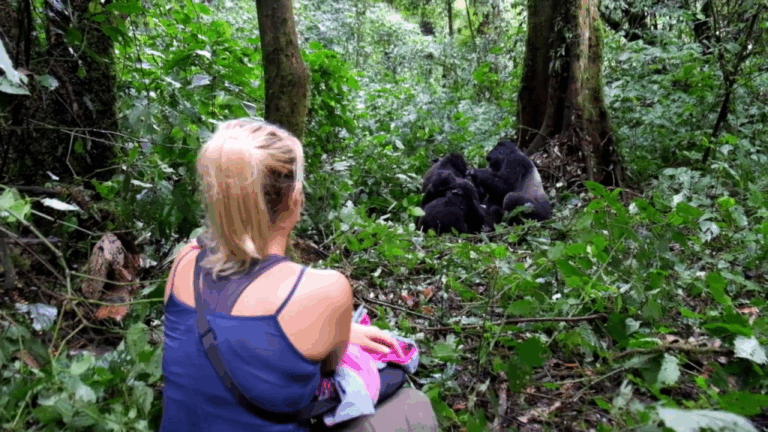Responsible Travel Guidelines in East Africa
Undertaking a safari is one of life’s greatest pleasures, providing unforgettable experiences, an opportunity to get immersed in new cultures and perspectives. It is an impactful teacher, opening your minds and hearts to the World around us. However, to ensure that we carry on with exploring and relishing these wonders for generations, it is important to travel responsibly. By adopting these responsible travel guidelines, the planet is protected and local communities supported, hence making Alba Wonders Africa’s safaris both meaningful and impactful.
Additionally, Responsible travel isn’t just a common trend but an important practice for future tourism. Therefore, here’s our comprehensive guide to responsible travel, marked by practical tips to assist you in making a positive impact on your safaris, as well as adopting more responsible travel practices.
Undertaking sustainable safari adventures
Choose safari adventures that promote conservation and respect Mother Nature. For instance, wildlife adventures should be organized by credible Tour Operators like Alba Wonders Africa that prioritize animal welfare and habitat preservation. Additionally, you should avoid safari adventures that exploit wildlife or harm the natural environment, hence promoting responsible travel principles.
For instance, cycling and guided village walks are wonderful adventures you can enjoy while on your safari, if you plan on visiting Bwindi Impenetrable National Park in Uganda
If you are visiting an Island, you can opt for eco-friendly practices. For instance, you can join public boats to Kalangala Island rather than taking a private charter.
Booking Eco-friendly accommodation options
 If you feel frustrated by all the responsible travel conversations, this is a wonderful place to begin. Choosing an eco-friendly accommodation, which aligns with responsible travel practices such as producing less carbon footprint, is crucial.
If you feel frustrated by all the responsible travel conversations, this is a wonderful place to begin. Choosing an eco-friendly accommodation, which aligns with responsible travel practices such as producing less carbon footprint, is crucial.
Start by choosing Safari Lodges, Tented Camps, or Hotels that prioritize sustainability. These include responsible tourism certifications that practice eco-friendly activities such as waste reduction, energy efficiency, use of organic and locally-sourced food/raw materials, as well as supporting local communities. Staying in these places for the duration of your safari will be fundamental in reducing your environmental footprint, as well as supporting businesses that are devoted to sustainability.
Traveling by land
Did you know that your long flight emits harmful gases as a regular car in one year? Yes, buses, trains, or ferries leave less pollution, hence making them more eco-friendly options compared to air travel. However, there might not be other options for traveling than flying, hence we recommend booking non-stop flights whenever possible. It will interest you to know that it is the takeoffs and landings that create most of the Planes’ carbon emissions.
If you are thinking of renting safari vehicles for your road trip, it is advisable to opt for electric and hybrid cars that use less fuel as well as produce less carbon emissions than fuel guzzlers.
For City and village excursions, we recommend walking or cycling tours, because they are the more eco-friendly options for exploring these areas.
Packing light
Another responsible travel practice for your safari is packing light, which is not only convenient but also reduces carbon emissions. For instance, when you pack light, you will reduce the weight of automobiles and planes, hence lowering carbon emissions.
Set your sight on only what you need and choose multifaceted clothing that can be mixed and matched, hence promoting responsible travel practices. For this reason, carry fewer luggage to enhance mobility, thus making it easier to maneuver through Cities and leading to more flexible safari experiences.
Additionally, you can organize your luggage and compress your clothes with packing cubes, or have versatile items that can be worn several times.
Using public transport or sharing rides
If you stand on the road for one hour, you will notice that some cars have just a driver while other seats are empty. Do you know how less pollution and traffic we could have if we used public transport or shared rides?
Being a passenger is the simplest example of practicing responsible travel because you get to share a ride with other potential drivers. More so, public coasters and buses, as well as trains, produce less carbon footprint and are less costly than taking a car. This will reduce your overall carbon footprint and allow you to experience the local culture more intimately.
Additionally, it is always more affordable, as you can save up money when sharing the cost of fuel with other travelers. However, hitchhiking isn’t recommended during East African safaris.
Directly supporting local economies
When you spend money locally, you will help support the community you are visiting. You can start by purchasing souvenirs (art and crafts) from local artisans, eating at local restaurants, and hiring porters, especially during on-foot adventures such as gorilla trekking, chimpanzee tracking, and golden monkey tracking in Uganda and Rwanda. These practices embody the principles of responsible travel.
Interestingly, tourism jobs are created in several sectors, including transportation, hospitality, and guiding services, hence providing employment opportunities for locals. This ensures that the money you spend directly benefits the local economy, especially those living around the safari destination, and helps preserve culture and traditions.
Reducing plastic use
Single-use plastics are detrimental to the natural environment; hence, packing a reusable water bottle, shopping bag, and utensils will minimize your plastic waste. Most Safari Lodges in the safari destinations you will visit now have refill stations for water bottles, hence making it easier to keep you hydrated without contributing to plastic pollution. This is an important responsible travel guideline for preserving generations.
Respecting local cultures and natural environments
While your main focus is wildlife, birds, and landscapes of the different destinations you are visiting, it is advisable to learn about the customs and traditions of these places. You can show respect by abiding by the local guidelines and being conscious of your behavior. When visiting natural attractions such as National Parks and Reserves, stay within the marked paths/game tracks and avoid frustrating animals. Your respect will help preserve these safari destinations for future generations, which is in line with responsible travel practices.
Live like a local
Do you wash your Towel every day when at home, do you? For this reason, don’t put it on the floor and instead hang it, so the housekeeping team knows that you want to use it again. Additionally, taking a short shower and not letting the water run while you brush will save a lot of water. Also, using a reusable water bottle not only reduces plastic waste but also saves money, as many Safari Lodges in the destinations you will visit provide water dispensers. Also, it is advisable to switch off the lights when you go out to save electricity.






